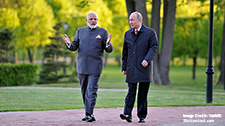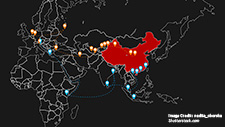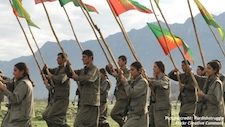Reinventing Human Security: Lessons from Chinggis Khan’s Biography
Robert E. Bedeski
The concept of human security has enjoyed some prominence in development and security studies/policy, especially within several Asian nations. While criticized as too broad for policy application, human security can also be faulted as excessively dependent on direct or indirect state (state-centric) action. An alternative approach is to re-formulate human security as human-centered, or ‘anthrocentric.’ From this perspective, human security’s core concern of ‘safety of individuals’ is refined as ‘Prolong Life, Postpone Death,’ with the individual mortality event as the ultimate and inevitable security failure. By examining the historical biography of Chinggis Khan a full array of security inputs can be identified, and a working (and quantifiable) theory of human life security can be derived.
Related Publications
-
The Limitations of India and Russia’s Transactional Relationship
Since Russia’s unprovoked invasion of Ukraine in February 2022, it might seem as though ties between India and Russia have strengthened. While much of the West isolated Russia, India-Russia energy […]
-
ISDP Annual Report 2023
ISDP’s Annual Report for the year 2023. We look back on 2023, a year in which tensions and conflicts captured the strategic space in ISDP’s focus areas, making headlines around […]
-
China in Eurasia: Revisiting BRI amidst the Russia-Ukraine Crisis
This paper discusses China’s trade and connectivity plans under the Belt and Road Initiative (BRI) in the Eurasian region and the impact of the Russian invasion of Ukraine on Chinese […]
-
Promise And Peril In The Caucasus
America’s national security bureaucracy separates the Caucasus and the Middle East into different bureaus, with Central Asia in yet another office. This is part of the reason the U.S. has […]
-
Turkey’s Problem Isn’t Sweden. It’s the United States.
The issue isn’t what Sweden says or does but what the United States does or fails to do on the ground in Syria that matters for Turkey’s national security interests. […]




